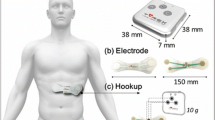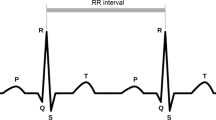Abstract
A long-term eco-medical monitoring was undertaken from 2009 through 2011 as part of the MARS-500 satellite project. One of its major objectives was to conduct field testing of innovative technologies for assessment of human physiological status. The monitoring protocol represented a replica of that in the experiment with 520-day isolation. Heart Wizard Mars-500 is a telemedical health assessment system based on heart rate variability (HRV) analysis. Prenosology diagnosis using Heart Wizard Mars-500 has been tested in the United States and Canada. Prenosology monitoring is aimed predominantly to estimate the potential risks of maladaptation. Our results further validate diagnostic comprehensiveness of HRV analysis, in particular, during long-term systematic health monitoring, and when functional HRV tests results are compared and contrasted with entries in the health and lifestyle questionnaire. Heart Wizard Mars-500 is a simple and easy system for home use. Individual prenosology monitoring to assess the dynamics of personal functional state and detect potential risk factors may inspire personal changes in the way of life and, thus, improve one’s health and life quality.
Similar content being viewed by others
References
Baevsky, R.M., Ivanov, G.G., L. Chireykin, et al., Analysis of heart rate variability when using different electrocardiographic systems, Vestn. Aritmol., 2001, vol. 24, p. 67.
Baevsky, R.M. and Chernikova, A.G., On the problem of physiological norm: A mathematical model of functional states on the basis of the heart rate variability analysis, Aviakosm. Ekol. Med., 2002, no. 6, p. 11.
Baevsky, R.M. and Berseneva, A.P., Vvedenie v donozologicheskuyu diagnostiku (Introduction to Prenosologic Diagnosis), Moscow, 2008.
Baevsky, R.M., Bersenev, E.Y., and Prilutsky, D.A., Hardware-software complex Ecosan-2007 for research in hermetic camera and remote regions (the Mars-500 project), in Mezhdunar. simpoz. po rezul’tatam eksperimentov, modeliruyushchikh pilotiruemyi polet na Mars (“Mars-500”) (23–25 aprelya 2012 g.): Sb. mater (Proc. Int. Symp. on the Results of Experiments Simulating a Manned Flight to Mars (Mars-500), April, 23–25, 2012), Moscow, 2012, p. 7.
Berseneva, A.P., Pougatchev, V.I., Baevsky, R.M., et al., Individual prenosological dynamic control based on the analysis of heart rate variability using the device Heart Wizard, Vestn. Udmurt. Univ., 2012, vol. 1, p. 45.
Grigoriev, A.I., Orlov, O.I., Loginov, V.A., et al., Klinicheskaya telemeditsina (Clinical telemedicine), Moscow, 2001.
Kaznacheev, V.P., Baevsky, R.M., and Berseneva, A.P., Donozologicheskaya diagnostika v praktike massovykh obsledovanii naseleniya (Preclinical Diagnosis in the Practice of Mass Population Surveys), Leningrad, 1980.
Karpenko, Yu., Study of variations in the heart rhythm depending on the internal and external environmental factors, Fundam. Issled., 2011. no. 10, part 3, p. 619.
Orlov, O.I., Telemeditsina v organizatsii zdravookhraneniya (Telemedicine in the Organization of Health Care), Moscow, 2002.
Baevsky, R., Chernikova, A., Funtova, I., and Tank, J., Assessment of individual adaptation to microgravity during long term space flight based on stepwise discriminant analysis of Heart Rate Variability Parameters, Acta Astronaut, 2011, vol. 69, p. 1148.
Chernikova, A., Baevsky, R., and Funtova, I., Adaptation risk in space medicine, in 63 In. Astronaut. Congr., Naples, 2012. ID-14827.
Heart rate variability. Standards of measurement, physiological interpretation and clinical use, Circulation, 1996, vol. 93, p. 1043.
Hillebrand, S., Gast, K.B., de Mutsert R., et al., Heart rate variability and first cardiovascular event in populations without known cardiovascular disease: metaanalysis and dose-response meta-regression, Europace, 2013, vol. 15, no. 5, p. 742. doi: 10.1093/europace/eus341. Epub. Jan. 30, 2013.
Novak P., Quantitative autonomic testing, J. Vis. Exp., 2011. Jul. 19 (53), p. 2502. doi: 10.3791/2502.
Orlov, O., Pougatchev, V., Berseneva, A., et al., Telemedical system for individual prenosological health assessment, in Tele-Med. Global Telemedicine and eHealth updates: Knowledge resources, Luxembourg, 2012, vol. 5, p. 433.
www.iki.rssi.ru/mars500
Author information
Authors and Affiliations
Corresponding author
Additional information
Original Russian Text © V.I. Pugachev, R.M. Baevsky, A.P. Berseneva, A.G. Chernikova, A.R. Baevsky, O.N. Isaeva, 2013, published in Aviakosmicheskaya i Ekologicheskaya Meditsina, 2013, Vol. 47, No. 6, pp. 39–45.
Rights and permissions
About this article
Cite this article
Pugachev, V.I., Baevsky, R.M., Berseneva, A.P. et al. Long-term eco-medical monitoring using the Heart Wizard Mars-500 system in North America. Hum Physiol 41, 802–807 (2015). https://doi.org/10.1134/S0362119715070191
Received:
Published:
Issue Date:
DOI: https://doi.org/10.1134/S0362119715070191




